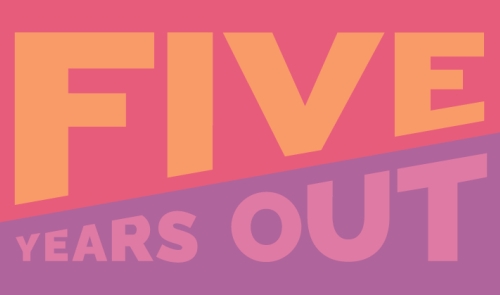Ava Lubell ’13 masters media law as general counsel of [I]Slate[/I]

Ava Lubell ’13 has been a Slate reader since long before she went to law school. As a college student with a strong interest in policy, government, and the media, she even thought she might want to write for the online magazine one day: “I loved that there was humor and intelligence without too much navel-gazing.” Although at NYU Law Lubell took a Media Law course that was taught by New York Times Deputy General Counsel David McCraw, she didn’t see her career taking a similar direction. “I think if you had asked me at the time,” she says. “I probably would have said I was more likely to become a reporter than a media lawyer.”
But just a year out of law school, Lubell started on a path to filling Slate’s general counsel role, a position she has occupied since 2016. McCraw says that he was not surprised. “She was one of those people who had a serious interest in the news and the role that news plays in democracy,” he says of his former student. “She was really looking for a way to take her law degree and use it to affect politics and affect change in society,” he adds, “so in some ways it was a natural fit, because she’s in a position where she’s working for a really influential website that’s doing really important work.”
Directly after law school, Lubell worked as a special assistant in the New York Governor’s office after being recruited by the governor’s chief of staff, Linda Lacewell, with whom she had taken a class on Public Integrity as a 3L. However, Lubell says that she was curious to try the private sector—and she felt a pull towards the media.
Initially, Lubell applied to be an office manager and executive assistant to Jacob Weisberg, then-chairman of Slate. Several days after she was hired, she discovered that the company didn’t have an in-house counsel. Slate’s corporate parent, Graham Holdings Company, had recently sold the Washington Post; prior to that sale, Slate had received legal assistance from the Post. “On my fourth day on the job—I had barely figured everyone’s name out—I was asked, ‘Hey, do you want to learn to help out with our legal work?’” Lubell recalls. She rose to the challenge. “I was in the perfect place at the perfect time,” she says, “because Slate was willing to take a risk on me and kind of let me figure things out.”
Lubell worked to develop a broad network of outside counsel as well as colleagues in media law, including McCraw, who she says, “we refer to as the dean of the media bar.” Building that network, Lubell says, has been one of the greatest joys of her time at Slate: Not only has she developed a group of lawyers whom she can consult professionally, but she also counts many of her media law colleagues as close friends.
Lubell also points to her 1L Contracts course, taught by Bernard Petrie Professor of Law and Business Barry Adler, as a resource that she still draws on. “When I try to explain to someone what it means to breach or violate a contract…I feel Barry Adler in my head,” she says.
McCraw notes that Lubell has developed an extensive set of generalist skills to handle a wide range of legal issues, “from traditional media topics like libel to the unfortunate truth that our reporters face real obstacles and threats and violence.” In addition, he says, “she’s still responsible for the functioning of Slate as a business and the legal concerns that that generates.”
In the four years that Lubell has spent at Slate, the company has nearly doubled in headcount, and Lubell has been responsible for building and managing the company’s human resources and IT teams, as well as overseeing a complex office move. And in her legal capacity, Lubell also has to stay abreast of an ever-changing online media environment. As an example of the legal challenges of online media, Lubell points to a recent decision from Judge Katherine Forrest ’90 in the Southern District of New York ruling that embedding a Twitter or Facebook post could violate copyright—impacting the way Slate writers report on news happening on the internet.
But these types of challenges, Lubell says, only make her job more interesting. “One of Slate’s founding principles is that we want to try to figure out how to make digital journalism work as a business, and that is incredibly appealing to me,” she says. “I believe in the mission. It’s exciting. I’m never bored.”
Posted November 27, 2018. Update, August 20, 2019: In December 2018 Lubell left Slate and joined Quartz as general counsel and vice president, operations.


